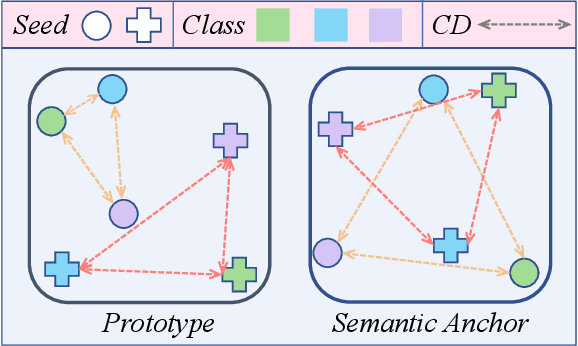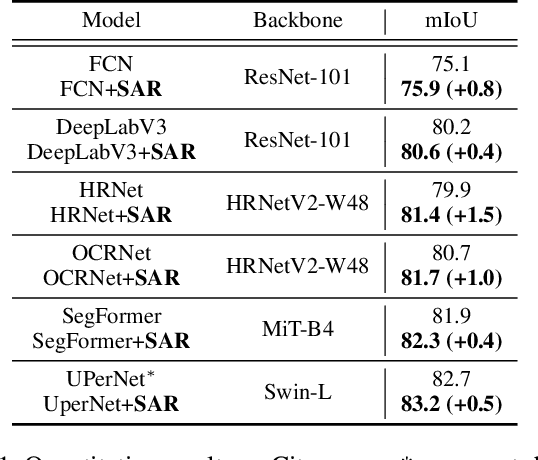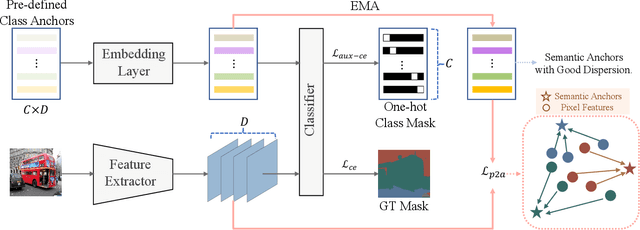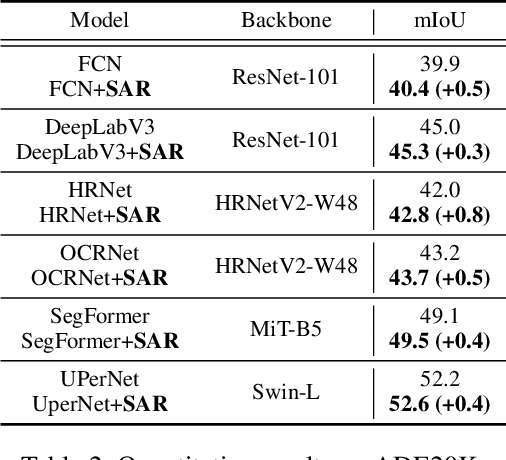Beyond Prototypes: Semantic Anchor Regularization for Better Representation Learning
Paper and Code
Dec 19, 2023



One of the ultimate goals of representation learning is to achieve compactness within a class and well-separability between classes. Many outstanding metric-based and prototype-based methods following the Expectation-Maximization paradigm, have been proposed for this objective. However, they inevitably introduce biases into the learning process, particularly with long-tail distributed training data. In this paper, we reveal that the class prototype is not necessarily to be derived from training features and propose a novel perspective to use pre-defined class anchors serving as feature centroid to unidirectionally guide feature learning. However, the pre-defined anchors may have a large semantic distance from the pixel features, which prevents them from being directly applied. To address this issue and generate feature centroid independent from feature learning, a simple yet effective Semantic Anchor Regularization (SAR) is proposed. SAR ensures the interclass separability of semantic anchors in the semantic space by employing a classifier-aware auxiliary cross-entropy loss during training via disentanglement learning. By pulling the learned features to these semantic anchors, several advantages can be attained: 1) the intra-class compactness and naturally inter-class separability, 2) induced bias or errors from feature learning can be avoided, and 3) robustness to the long-tailed problem. The proposed SAR can be used in a plug-and-play manner in the existing models. Extensive experiments demonstrate that the SAR performs better than previous sophisticated prototype-based methods. The implementation is available at https://github.com/geyanqi/SAR.
 Add to Chrome
Add to Chrome Add to Firefox
Add to Firefox Add to Edge
Add to Edge